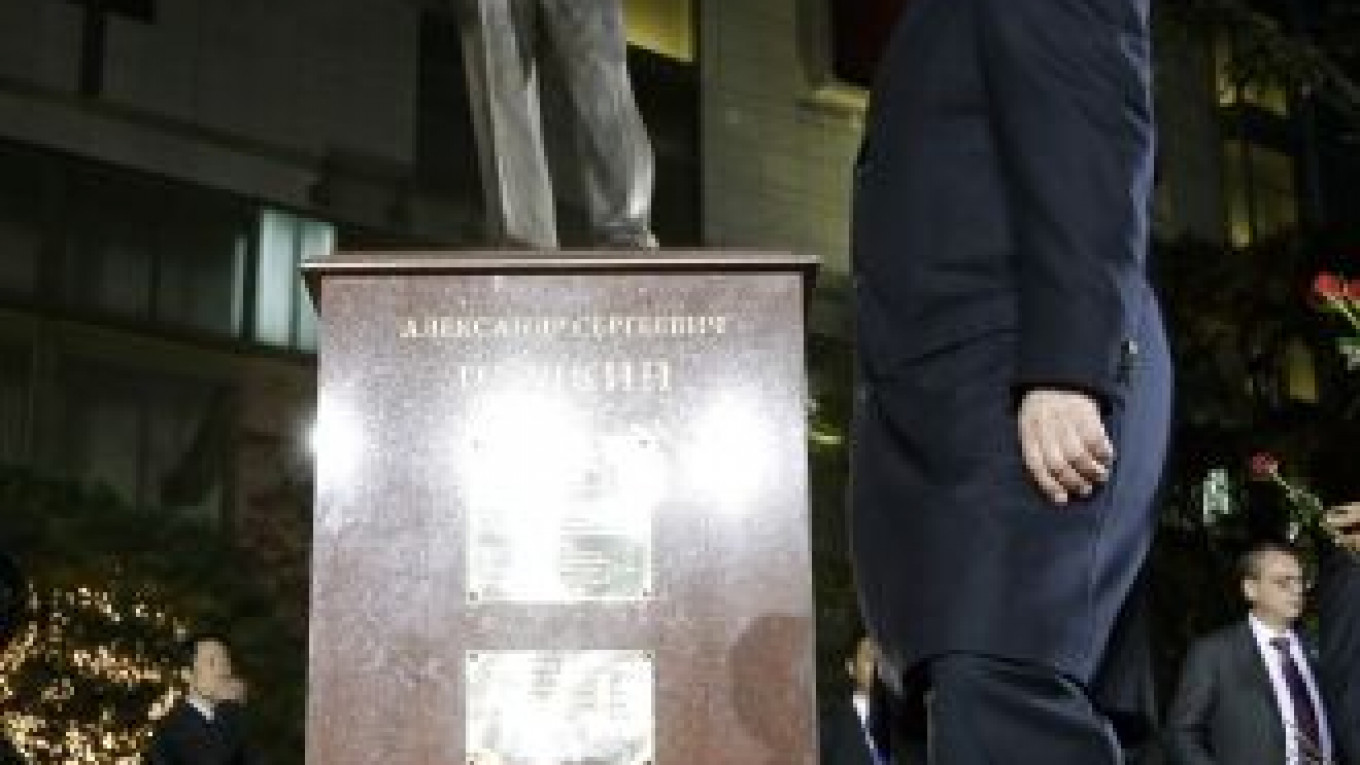President Vladimir Putin and his South Korean counterpart Park Geun-hye presided over the signing of numerous deals in Seoul on Wednesday, as Russia strives to swell its significance as a trading partner for the Pacific Rim countries.
In accordance with tradition, the majority of these projects involved the transportation of hydrocarbons and other resources, though the two countries were also able to hammer out an agreement on a visa-free travel regime.
During Putin's visit, two funds were created that will channel resources into investment projects on Russia’s territory, including the Far East and Siberia.
The first of these, between the Russian Direct Investment Fund and Korean Investment Corporation will commit $1 billion to a joint investment vehicle. Russia’s state development bank, VEB, is setting up another fund worth the same amount together with Export-Import Bank of Korea, Putin said.
According to the Economic Development Ministry, trade turnover between Russia and South Korea in 2012 surpassed $22 billion, putting the country in 12th place among South Korea’s trading partners. Russia's main exports are crude oil, gas, coal and fish, while it imports automobiles, car parts and electronics.
China is South Korea's principal trading partner, followed by the U.S. and the European Union.
“Besides traditional oil and gas supplies, we are holding negotiations on joint production facilities in this sphere. In particular, we are talking about setting up large liquefied natural gas production plants in Russia’s Yamal and the Far East,” Putin said.
He also pointed to the high potential of the Northern Sea Route for transporting hydrocarbons.
“This means large orders for the shipbuilding industry and joint work to modernize port infrastructure,” Putin said, praising South Korean shipbuilders, whose government began supporting the sector as early as 1962. Since then it has become one of world’s best.
Russia plans to award South Korean shipbuilders a contract to build at least 13 liquefied natural gas carriers, South Korea's presidential office said Wednesday, Reuters reported.
The same day, Russia’s state oil powerhouse Rosneft and South Korean Daewoo Shipbuilding & Marine Engineering company signed a memorandum of understanding on shipbuilding cooperation.
Another agreement concluded in Seoul should facilitate Russia’s plans for deeper trade integration with the Pacific Rim countries.
Russian Railways and a consortium of South Korean companies — POSCO, HMM, and KORAIL — signed a memorandum of understanding that may reanimate the Trans-Korean Mainline.
In September, Russian Railways opened a fully reconstructed 54-kilometer rail link between the town of Hasan on the Russian border and North Korean port Rajin.
At first, Rajin will handle coal freight coming from Russia by rail to be shipped to China, South Korea and other neighboring Asian countries. Plans are in place to upgrade and equip it to be able to provide container services.
If a well-developed connection with the South Korean railway system, which there was to some extent before the Korean war, was built, the port would provide further trading opportunities for Russia, as the trade route would have a direct access to the Trans-Siberian Railroad.
Behind the big natural resource deals was Russia's interest in South Korean science and technology.
“Korea … takes first place in the level of IT development and is ranked second in the rating of most innovative countries in the world,” Viktor Vekselberg, the president of Skolkovo Foundation, said after signing two agreements with Korean partners on joint research projects, Interfax reported.
The goal is to set up a Russian-Korean innovation center in Skolkovo.
South Korea can also profit from the partnership, Vekselberg said, as Russia can provide its brainpower for the benefit of both countries and the global economy.
An agreement was signed between The Skolkovo University of Science and Technology, Russia's En+ Group and Korea's Electric Power Corporation to research optimal routes for electrical grid line construction in northeastern Asia, an area in which Russia has expertise to share.
Contact the author at [email protected]
A Message from The Moscow Times:
Dear readers,
We are facing unprecedented challenges. Russia's Prosecutor General's Office has designated The Moscow Times as an "undesirable" organization, criminalizing our work and putting our staff at risk of prosecution. This follows our earlier unjust labeling as a "foreign agent."
These actions are direct attempts to silence independent journalism in Russia. The authorities claim our work "discredits the decisions of the Russian leadership." We see things differently: we strive to provide accurate, unbiased reporting on Russia.
We, the journalists of The Moscow Times, refuse to be silenced. But to continue our work, we need your help.
Your support, no matter how small, makes a world of difference. If you can, please support us monthly starting from just $2. It's quick to set up, and every contribution makes a significant impact.
By supporting The Moscow Times, you're defending open, independent journalism in the face of repression. Thank you for standing with us.
Remind me later.






